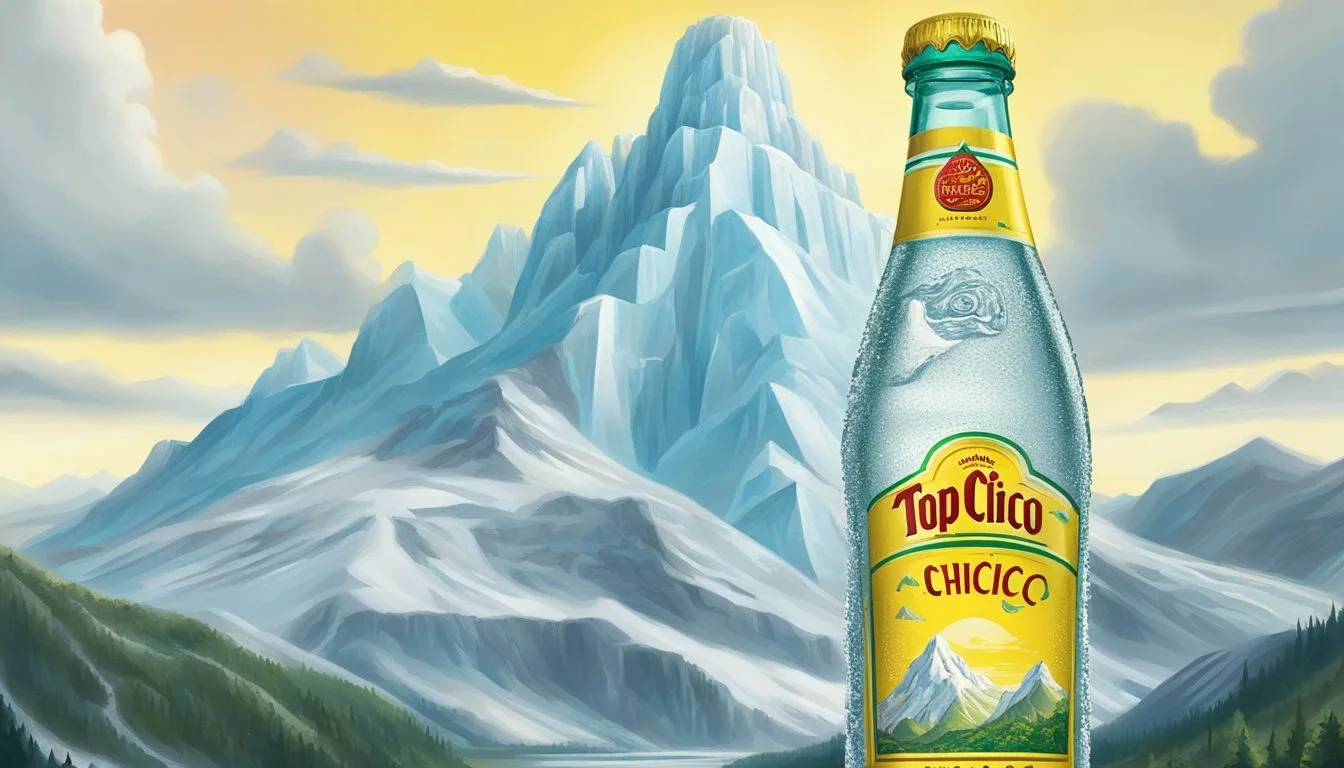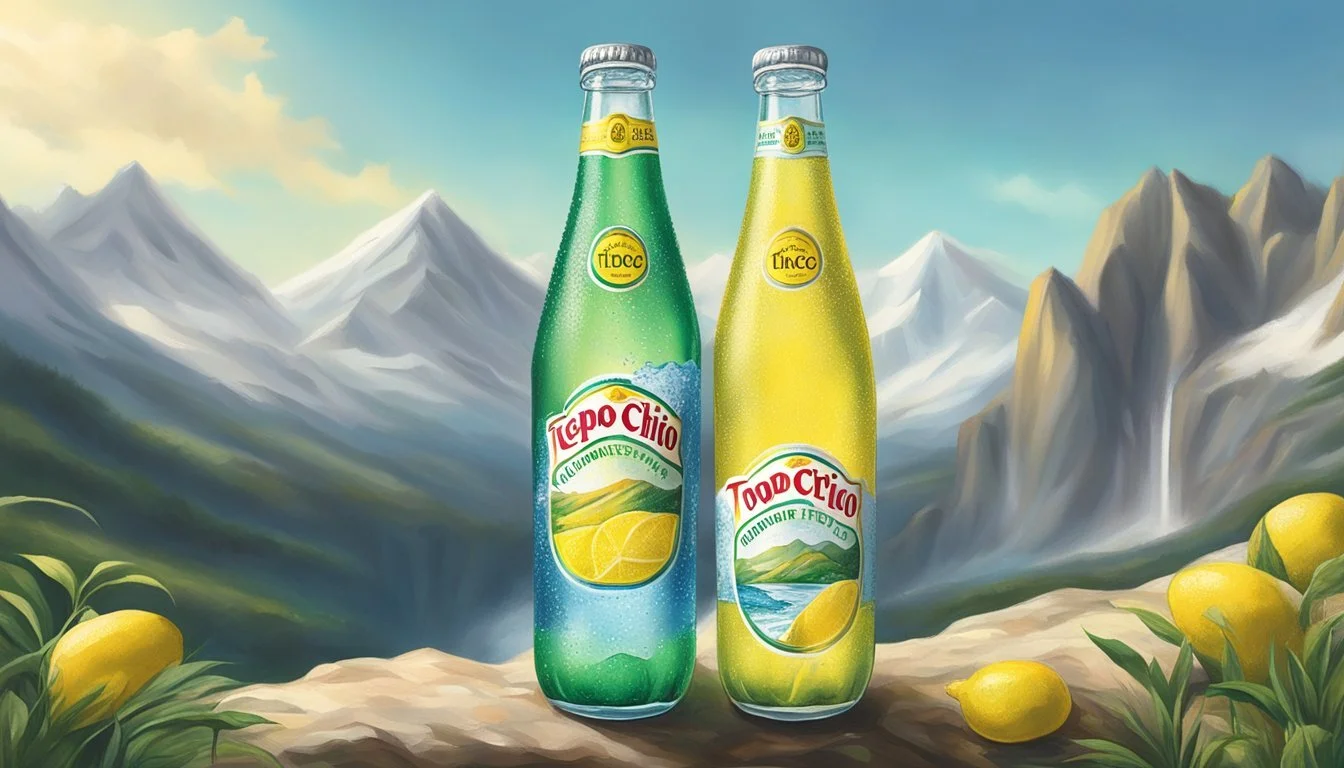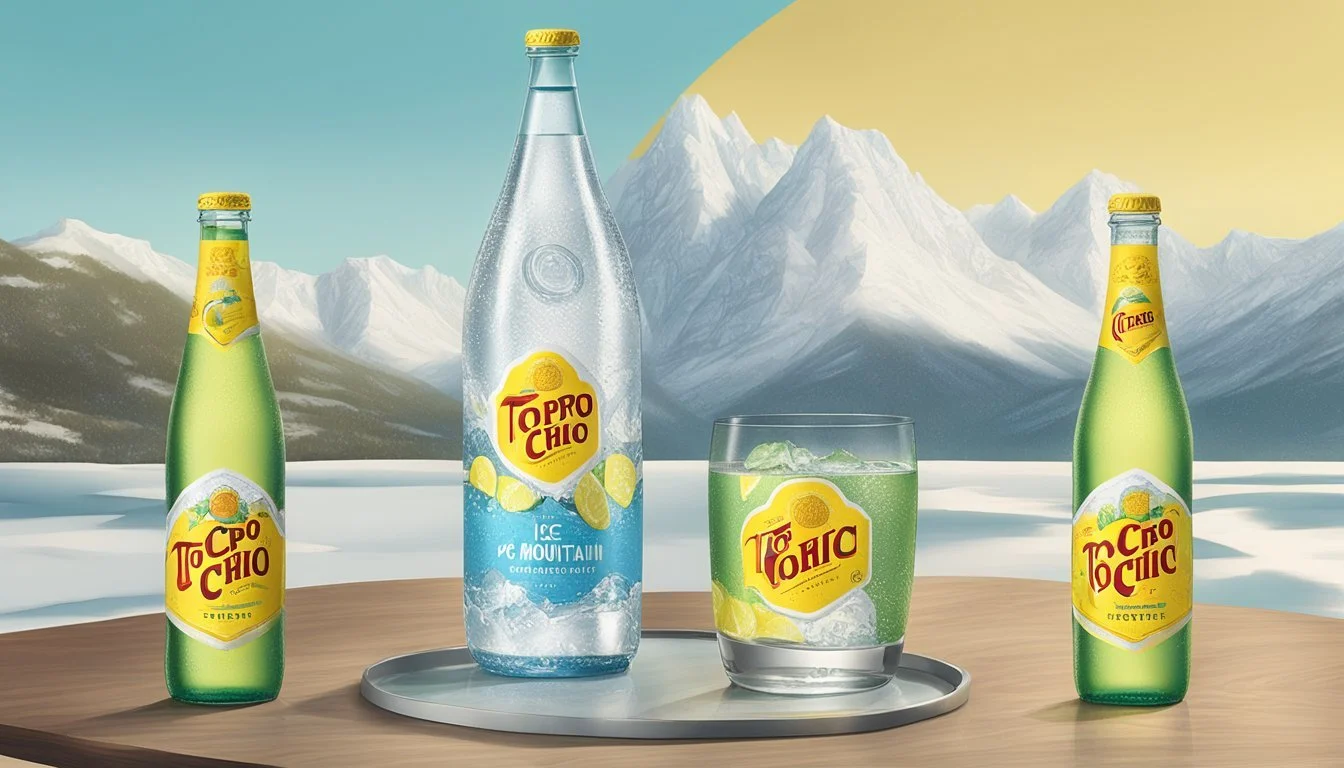Ice Mountain vs. Topo Chico
The Ultimate Bottled Water Comparison
In the realm of bottled water, consumer choice often boils down to personal preference regarding taste, source, and added health benefits. Ice Mountain and Topo Chico represent two distinct offerings in this saturated market. Ice Mountain, sourced from natural springs in the Midwest, presents itself as a convenient and refreshing option that caters to those seeking the taste and purity of spring water. Its wide availability and regional sourcing have made it a staple in many American households.
Topo Chico, on the other hand, has carved out a significant niche with its sparkling mineral water. Hailing from Mexico and carbonated with natural minerals, Topo Chico is often favored by enthusiasts who crave its unique taste and effervescence. The brand has a longstanding history and a cultural cachet, particularly among the craft beverage community. Comparing these two notable brands involves more than just scrutinizing their taste profiles; it includes considering the source, carbonation, presence of minerals, and packaging—a glass bottle in the case of Topo Chico, which enhances its image of authenticity and tradition.
Historical Background
Historical context is pivotal in understanding the roots and trajectory of bottled water brands. This section delves into the origins and development of both Topo Chico and Ice Mountain.
Origin of Topo Chico
Topo Chico's story began in Monterrey, Mexico, rooted in the Cerro del Topo Chico mountain. Topo Chico has been drawn from a spring at the foot of this mountain since 1895. Its significant mineral composition and crisp taste have been attributed to this natural source, distinguishing it within the bottled water market.
Ice Mountain's Emergence
Moving north to the United States, Ice Mountain originates from Michigan. Although the brand was later established, it quickly became associated with providing natural spring water to several states. Ice Mountain taps into several springs across the Midwest, pledging to offer the fresh taste of these local waters.
Composition and Properties
In assessing bottled waters like Ice Mountain and Topo Chico, their mineral content and subsequent health implications are determining factors. This comparison will be clarified through a detailed look at each brand's mineral composition and the potential health benefits or concerns associated with their consumption.
Mineral Content Analysis
Topo Chico:
Calcium: Essential for bone health.
Magnesium: Supports muscle and nerve function.
Potassium: Regulates fluid balance.
Sodium: Maintains blood pressure.
Ice Mountain primarily markets itself as spring water, which suggests a variable mineral composition based on the source. However, these minerals are generally in lower concentrations compared to mineral waters.
Mineral Topo Chico (mg/L) Ice Mountain (varies by source) Calcium Moderate Low to Moderate Magnesium Moderate Low Potassium Low Trace to Low Sodium Moderate to High Low to Moderate
Health Implications
The mineral content of bottled water can influence its pH levels and therefore its interaction with the body. Alkaline water is often sought for its purported health benefits, including better hydration and a balance in the body's pH.
Topo Chico: Its mineral-rich composition leads to a distinctly crisp taste and a slightly alkaline pH, which some consumers believe can help with digestion and provide a feeling of enhanced hydration.
Ice Mountain: With fewer minerals, the health implications are primarily associated with its adequacy for hydration, as the water does not significantly tilt the body's mineral balance or pH level.
Both varieties provide hydration, but Topo Chico's higher mineral content may afford additional health benefits, such as improved electrolyte replenishment. Consumers should consider individual dietary needs when choosing between these bottled waters.
Production and Purification
Understanding the origin and purification process of bottled water is crucial in discerning its quality. This section will focus on how Ice Mountain and Topo Chico source and extract their water, as well as the methods they use to purify it, showcasing the unique aspects of each brand's approach.
Sourcing and Extraction
Ice Mountain derives its water from carefully selected springs in the United States, primarily located in Michigan. These springs are naturally replenished, ensuring a consistent supply of water. They emphasize that their sources are sustainable, complying with environmental standards to maintain the balance of local ecosystems.
Topo Chico, on the other hand, sources its mineral water from the Cerro del Topo Chico spring near Monterrey, Mexico. The water from this location is notable for its natural carbonation and rich mineral content, which has been a key selling point for over a century.
Purification Methods
Ice Mountain employs a multi-step purification process. This includes filtration, where impurities are removed, and then typically reverse osmosis, which further purifies the water by filtering it through a semi-permeable membrane. Additional steps may include exposure to ultraviolet light for disinfection and the inclusion of a final filtration step to ensure the purity of the water.
Topo Chico's mineral water undergoes a natural filtration process as it makes its way through the mountain layers, which enriches the water with minerals and carbonation. After extraction, Topo Chico may perform additional purification to comply with commercial standards, but they are careful to retain the water's natural effervescence and mineral composition that characterizes their brand.
Both companies strive to maintain the purity and taste of their water, ensuring that by the time it reaches the consumer, it meets all quality and safety standards.
Packaging and Sustainability
Comparing Ice Mountain and Topo Chico in terms of packaging and its sustainability implications reveals significant differences, particularly in material use and environmental impact.
Bottle Materials
Ice Mountain predominantly uses plastic bottles for its water packaging, which they design to be 100% recyclable. These bottles are specifically made from PET (polyethylene terephthalate), a commonly recycled plastic.
On the other hand, Topo Chico utilizes both glass bottles and plastic bottles, offering a choice for consumers. Glass bottles are often perceived as a more sustainable option over plastic due to the fact that glass can be recycled indefinitely without loss of quality.
Environmental Impact
Ice Mountain, under the Nestlé Waters North America umbrella, has initiatives to make its operations more sustainable, including aiming to be carbon neutral in certain products by a future date. They emphasize on increasing the recycling rates of their bottles but face challenges due to the limitations within municipal recycling programs.
Topo Chico, as a Coca-Cola brand, has also made commitments to environmental sustainability. The company has a global goal to collect and recycle the equivalent of every bottle or can it sells by 2030. Additionally, its glass bottles offer a sustainable edge for being able to be reused in some markets, reducing the need for the production of new bottles.
Both brands are part of an industry-wide movement toward greater sustainability practices, but the real environmental impact heavily depends on local recycling capabilities and consumer recycling behavior.
Branding and Market Presence
Ice Mountain and Topo Chico are prominent names in the bottled water market, each with distinct branding strategies and reputations that resonate with diverse consumer bases.
Consumer Perceptions
Ice Mountain, a brand under the Nestlé umbrella, is often associated with the idea of pure, Midwest-sourced water. The brand leverages this perception to build brand loyalty within the United States, where regional preferences for bottled water can influence consumers' choices. Topo Chico, on the other hand, is a product of Coca-Cola, boasting a heritage that connects with customers looking for a sparkling mineral water with a crisp taste profile. The brand's image as a refreshing beverage has been upheld through effective marketing, which has bolstered its reputation particularly among younger demographics who champion trendy products.
Ice Mountain:
Viewed as locally sourced, dependable water
Strong regional presence in the Midwest
Topo Chico:
Known for its "slicing bubble" effervescence
Favored by consumers seeking a chic and vibrant drink option
Company Profiles
Nestlé situates Ice Mountain within its vast portfolio of water brands, capitalizing on the trusted and traditional aspects of the brand to maintain a solid foothold in the market. The company's strategy often emphasizes Ice Mountain as an everyday hydration choice, appealing to a broad audience. Coca-Cola, however, positions Topo Chico as a historic brand with a unique selling proposition focused on its mineral-rich composition and distinct taste experience, often associated with mixology and contemporary beverage culture.
Ice Mountain (Nestlé):
Targets a wide market segment with an emphasis on trust and purity
Benefits from Nestlé's extensive distribution network
Topo Chico (Coca-Cola):
Aims at niche markets looking for a product with heritage and authenticity
Utilizes Coca-Cola's global reach to expand their market presence
Tasting Notes
When selecting between Ice Mountain and Topo Chico, discerning consumers often rely on their flavor profiles and the differences in carbonation, which can significantly affect the overall tasting experience.
Flavor Profiles
Ice Mountain primarily offers a straightforward, clean taste. It lacks additional flavorings, allowing its pure and mild mineral content to shine through. Consumers won't detect bold notes, making it ideal for those who prefer their water without distinctive mineral tastes or added flavors.
Topo Chico, on the other hand, is recognized for its robust carbonated mineral water available in plain and flavored varieties. It features a zesty and crisp profile, particularly in its lime and grapefruit variants, which impart a vivid citrus essence. The unflavored version retains a subtle mineral taste, which is amplified by the high carbonation.
Comparative Analysis
In comparing the carbonation of these two brands, Topo Chico stands out with its intense bubbles that deliver a sharp tickle on the palate. This vigorous carbonation enhances the water's texture and can influence one's perception of flavor intensity, especially in the lime and grapefruit options.
Ice Mountain, while gently carbonated, focuses on delivering a smooth, silky mouthfeel. It's less aggressive on the tongue, making it a preferred choice for those whose preferences lean toward a softer, more traditional water experience with minimal interference from bubbles.
In taste tests, fans of Topo Chico rave about the refreshing kick the carbonation provides, which can be particularly invigorating on a hot day or as a mixer in beverages. Ice Mountain consumers often cite the brand's neutrality and purity as its selling points, appealing to those seeking a classic taste without the flourish of carbonation.
Health and Safety Regulations
In evaluating the health and safety of bottled waters such as Ice Mountain and Topo Chico, it is necessary to consider how each brand adheres to regulations and responds to quality concerns. The Environmental Protection Agency (EPA) sets standards that define safe levels of contaminants, including lead, arsenic, and per- and polyfluoroalkyl substances (PFAS chemicals). These standards are crucial for ensuring consumer safety and maintaining water quality.
Quality Control
Both Ice Mountain and Topo Chico are subject to the EPA's strict water quality standards. Ice Mountain, part of the Nestlé family of bottled waters, claims to have rigorous quality control processes in place, focusing on the testing for contaminants. It prides itself on meeting or exceeding the safety levels set by the EPA.
Topo Chico, on the other hand, has faced scrutiny over the presence of PFAS chemicals, which are linked to several health issues. According to Consumer Reports, Topo Chico has significantly reduced PFAS levels in its products, striving for transparency and consumer safety. The company has taken steps to lower these chemicals to levels below the drinking water standards set by the EPA.
Class-Action Suits and Controversies
The bottled water industry occasionally faces class-action lawsuits stemming from alleged safety and transparency issues. Past class-action suits have brought to light the presence of contaminants like arsenic or lead, which are strictly regulated by the EPA. Safety concerns, if not addressed, can lead to reputational damage and legal challenges for these companies.
Topo Chico came under fire when Consumer Reports found high levels of PFAS chemicals, leading to concerns over the product's safety. This initiated discussions about the potential for class-action litigation, emphasizing the need for consistent testing and reporting of water quality. The transparency in these matters helps to protect consumer health and companies' integrity.
Comparative Analysis
Ice Mountain and Topo Chico are recognized brands in the bottled water market, each with its distinct qualities.
Ice Mountain is lauded for its natural midwestern United States origin. The brand often emphasizes sustainability in their water sources, employing eco-friendly practices such as lightweight bottles and recycling programs. Its purification process involves natural filtration and ozonation for purity. Ice Mountain's offerings include both still and sparkling water, with the latter having introduced carbonation for a fizzy alternative.
Topo Chico, by contrast, is a Mexican mineral water known for its sharp carbonation and it's rich mineral content which contributes to its distinct flavor. Originating from the Cerro del Topo Chico mountain, the water is naturally carbonated at the source which gives it a unique effervescence. Moreover, Topo Chico has taken steps to reduce levels of PFAS chemicals, showcasing a commitment to health concerns.
Aspect Ice Mountain Topo Chico Origin Midwest, USA Monterrey, Mexico Sustainability Eco-friendly focus Efforts in health safety Purification Filtration, ozonation Natural Carbonation Added to select products Naturally occurring Mineral Content Standard for purified water High, varies by source pH Level Neutral to slightly alkaline Typically neutral but varies
Both brands have made efforts to ensure the health safety of their products, with Ice Mountain providing standard purified water and Topo Chico boasting a unique mineral profile. Consumers interested in the benefits of mineral content might lean towards Topo Chico, while those seeking a product from a brand with a strong sustainability narrative may prefer Ice Mountain. Each brand holds a unique place in the market, catering to different preferences in taste, health, and environmental impact.
Consumer Insights
When comparing Ice Mountain and Topo Chico bottled waters, customer reviews provide valuable insights into their preferences and experiences.
Ice Mountain is often praised for its clean and crisp taste. Customers resonate with its affordability and accessibility. It's commonly available in grocery stores, and the Amazon platform frequently features positive reviews focusing on its value for money and pleasant taste.
Ice Mountain: Generally positive reviews on taste and value
On the other hand, Topo Chico, with its signature effervescence, garners a fan base that appreciates its unique mineral-rich taste. Although it can be pricier than Ice Mountain, enthusiasts do not mind paying a premium for the experience it offers. It often finds a spot in reviews for its refreshing carbonation, which is highlighted as a distinctive feature compared to other bottled waters.
Topo Chico: High marks for unique carbonated mineral water taste
Taste preferences for bottled water vary, with some customers preferring the still purity of Ice Mountain, while others opt for the fizzy minerality Topo Chico provides. In online marketplaces like Amazon, both brands receive commendations for taste, but Topo Chico might encounter a slight edge for consumers seeking a sparkling option.
Brand Key Attributes Amazon Rating (approx.) Ice Mountain Pure taste, still water, affordable 4.6 out of 5 Topo Chico Carbonated, mineral-rich, slightly higher price point 4.7 out of 5
Consumers value the authenticity and consistency in their bottled water choice, whether that leads them to the stillness of Ice Mountain or the spirited bubble of Topo Chico.
Innovations in Water Consumption
The bottled water industry has seen significant innovations, particularly with the introduction of novel flavors and a growing presence in the mixology sector.
Novel Flavors and Variants
Today's consumers can enjoy a range of flavored sparkling waters. Brands like LaCroix and Bubly have led the charge, offering flavors from a twist of lime to more exotic options like twist of grapefruit. These innovations cater to a broad audience, providing a refreshing experience without added sugars or artificial flavors.
LaCroix: Known for a variety of flavors, some include:
Key Lime
Tangerine
Passionfruit
Bubly: Offers a playful spin on sparkling water with flavors such as:
Blackberry Bubly
Cherry Bubly
Lime Bubly
Drink Pairings and Mixology
The rise of sparkling water and seltzers has made its way into mixology. Bartenders commonly use these as a base for cocktails, appreciating the effervescence provided by dissolved carbon dioxide. A popular cocktail known as ranch water, which traditionally combines sparkling water with tequila and lime, exemplifies this trend. Essentia, distinguished by its ionization process, while not sparkling, is often used for its smoothness to mitigate the risk of hangovers.
Cocktail Example: Ranch Water
Ingredients: Sparkling water, tequila, fresh lime juice
Popularity: Favored for its simplicity and refreshing taste
Using these elements, both Ice Mountain and Topo Chico continue to adapt to consumer preferences with their offerings of plain and flavored water options, solidifying their place in a market driven by demand for healthier and more versatile beverage choices.
Conclusion
When comparing Ice Mountain and Topo Chico, consumers are presented with two distinct choices. Ice Mountain is known for its straightforward, clean taste and is often preferred for everyday hydration. It's sourced from natural springs in the Midwest and has a loyal customer base who appreciate its accessibility and affordability.
Topo Chico, on the other hand, brings a unique offering to the table with its effervescent mineral profile. Originating from Monterrey, Mexico, this carbonated mineral water offers a bold and refreshing experience and has arguably set the standard in the bubbly water niche. Its appeal extends not only to those looking for a casual refreshment but also to the craft drink aficionados.
In terms of market trends, sparkling waters like Topo Chico have been gaining popularity, especially among health-conscious consumers looking for a soda alternative. However, the bottled water industry as a whole continues to be dominated by still waters, with brands like Ice Mountain catering to the demand for pure, uncarbonated drinking water.
The decision between Ice Mountain and Topo Chico will largely depend on personal preference and the specific occasion. For a rejuvenating drink with a kick of carbonation, one might prefer the crisp taste of Topo Chico. In situations where simplicity is key, Ice Mountain provides a classic, no-frills option. Both brands have carved their niches successfully, reflecting their understanding of consumer choice and the dynamic landscape of bottled waters.








